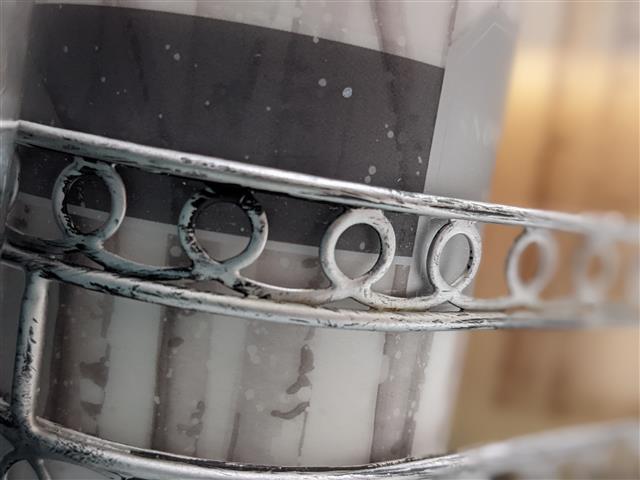Asphalt and concrete are both building products utilized for building and construction and paving highways, sidewalks, and driveways. Each deals numerous positives and negatives, however which is more affordable? And which should you pick for your application?
Which Is Cheaper: Asphalt Or Concrete?Asphalt is the more affordable material, per square foot set up, in the vast bulk of applications. Concrete tends to be more expensive to lay because of both product expenses and the trouble of achieving a smooth, level surface. However, asphalt’s long-lasting maintenance expenses may render it similarly priced as concrete for some applications.The St. Louis Fed tracks
asphalt and concrete/cement manufacturer prices with time. The manufacturer rate is the amount that the producer charges for raw materials from the factory gate. It is an useful metric due to the fact that it strips out other factors that might affect the rate, such as the shortage of concrete layers.According to Fed data from the US Bureau of Labor Stats’
Producer Cost Index, the expense of asphalt paving has more than doubled considering that 1984. The index hit 269.5 in September 2020, and in 1984 the index sat at 100. By contrast, cement items are now just 21 percent more costly, with the index hitting 121.0 in September 2020, while in 1984 that number matched asphalt at 100. You can expect to pay between$ 1 and$ 5 per square foot of asphalt set up and
in between $3 and$ 10 per square foot for concrete. Costs, nevertheless, might vary, depending upon the scale of the work. The bigger the area you wish to pave, the lower the cost per square foot. Smaller sized tasks, such as driveways, will tend to be more costly per system location than more substantial projects such as roadway paving and industrial applications. Why Is Asphalt Cheaper Than Concrete?Concrete and asphalt are both mixtures of crushed stone (called aggregate) and sand.
The distinction in between them is the representative that binds the mix together. In asphalt, the binding ingredient is a thick, thick petroleum byproduct. In concrete, the binding material is cement.The binding agent is the main factor that asphalt is cheaper than concrete. Asphalt emerges from crude oil during the distillation process.
The longer-chain hydrocarbons, including the thick bitumen that goes into asphalt, fall to the bottom of the distillation chamber. Refineries then collect it and store it in tanks, all set to deliver off to asphalt makers to produce paving products.Concrete is made differently. First, business high up in the supply chain mine the raw materials used in cement production, usually limestone and clay. They then squash the rock to
get the particle size below 50mm and add a series of cement ingredients, consisting of iron ore, prior to drying, grinding, and homogenizing the raw material again.Towards the end of the production, the raw material goes through clinkerization, which includes utilizing a kiln to heat the product. High temperatures of around 1400 C help to decarbonize the limestone– a chemical
process that assists to make the cement mix sticky. The final step is to keep the product prior to delivering it off to installers.Both asphalt and concrete production rely on vast industrial infrastructures to produce, which adds to their expense. However, asphalt is cheaper due to the fact that it takes advantage of the demand for other refined petroleum forms– such as petroleum and kerosene. Motorists, airline companies, shipping
business, and electrical power generators demand huge quantities of petroleum derivatives. And the earnings they provide spends for the lion’s share of the infrastructure.The volume of demand for asphalt is much lower, so its price just shows its demand at any given time, relative to the other applications. As oil costs alter, so too does the rate of asphalt.Contrast that scenario to concrete. Here, products mine and refine basic materials for the sole purpose of developing concrete for the building and construction industry.
Since of this, concrete rates embody the full expense of the infrastructure required to make it. Providers bid up the market rates to the point where it is worth their while providing it. Unlike asphalt,
production is not secondary to another, bigger market. If Asphalt Is Cheaper, Why Usage Concrete?At Debuck Construction, our company believe that both concrete and asphalt are practical paving choices. Which you pick depends greatly on the expenses and advantages that matter to you. Asphalt manufacturer costs might be lower than concrete, however the life time take advantage of concrete can be higher in some cases. Less Maintenance For instance, asphalt tends to split over time– something that takes place mainly due to forces used by braking or turning vehicles
. Weak points in the base layer or imperfect asphalt mixes lead to rutting, swelling, and patch failures, increasing long-run upkeep costs.Concrete, by contrast, isn’t subject to the same level of degradation. Blends tend to have fewer flaws, helping them last longer. Concrete is likewise extremely resistant to ultraviolet rays, humidity, rain, freeze-thaw wear and tear, and chemicals. Greater Longevity Concrete is likewise longer-lasting than asphalt throughout a range of applications. On driveways, for example, asphalt typically endures 20 years before requiring replacement. Concrete offers up to thirty years of life. The Advantages Of Asphalt Those looking for asphalt paving near me, however, should not write off asphalt as merely low-cost
. It likewise has benefits that might make it more fit to your application!Curing, for instance, happens practically instantly, implying that you do not need to wait to utilize surface areas. Concrete takes up to 7 days to harden correctly.Furthermore, maintaining asphalt is much easier. If you see a hole, you can fill and
seal it rapidly and discreetly, keeping the visual. And because it is made from petroleum by-products, oil spills are less obvious. Finishing up While asphalt is less expensive than concrete wholesale, the lifetime costs of both are similar. Furthermore, the product you select eventually depends on stabilizing the different expenses and advantages, such as whether you value ease of maintenance.Debuck Building and construction makes heavy use of both products. Each has essential properties that make it engaging in specific situations.As experienced asphalt
sealcoating specialists near you, we can direct you on the very best alternative for your application. Brand-new building, car park repaving, asphalt striping, and crack filling may prefer asphalt. Highways, walkways, concrete walls, curbs and seamless gutters, foundations, and flooring may benefit more from concrete.




